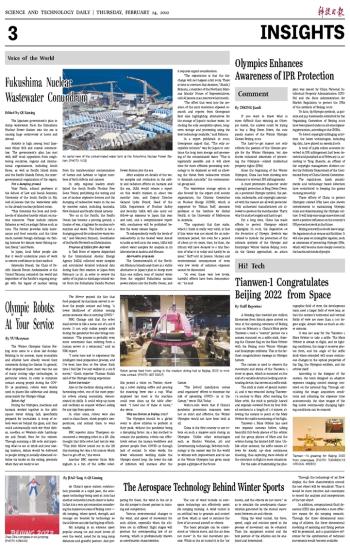
If you want to know what is more difficult than winning an Olympic medal, the answer could be trying to buy a Bing Dwen Dwen, the cute panda mascot of the Winter Olympic Games Beijing 2022.
The hard-to-get mascot not only reflects the passion of the Chinese people for the Winter Olympics, but also shows enhanced awareness of protecting the Olympics -related intellectual property rights (IPRs).
Since the beginning of the Winter Olympics, China has been showing zero tolerance to relevant IPR infringements.
A most prominent character under copyright protection is Bing Dwen Dwen. As a protected Olympic symbol, the patents, trademarks, and copyright associated with the mascot are all well-protected. Only authorized manufacturers are allowed to produce the merchandise. That's why it's in short supply and hard to get.
For a long time, China has made efforts to protect Olympics-related copyrights. In 2018, the Regulation on the Protection of Olympic Symbols was revised to include the protection of the relevant symbols of the Olympic and Paralympic Winter Games Beijing 2022. As the Games approached, an action plan was issued by China National Intellectual Property Administration (CNIPA) and the State Administration for Market Regulation to protect the IPRs of the symbols of Beijing 2022.
To date, 63 Olympic symbols, 14 patents and 315 trademarks submitted by the Organizing Committee of Beijing 2022 have been placed under an all-encompassing protection, according to the CNIPA.
To detect copyright-infringing activities, the latest technologies, including big data, have played an essential role.
A total of 3,363 online accounts involved in IPR infringement had been detected and punished as of February 12, according to Tang Zhaozhi, an official of the copyright management division under the Publicity Department of the Communist Party of China Central Committee.
The regulations, harsh punishments and technology-based detection have contributed to keeping the games running smoothly.
These efforts of China to protect Olympics-related IPRs have also shown commitments to maintaining Olympic rules and disseminating the Olympic culture. It will help encourage innovators and exert a positive influence on the country's IPR protection work in the future.
Beijing 2022 will no doubt leave tangible legacies such as venues and facilities. It will also pass on intangible legacies, such as awareness of protecting Olympic IPRs, which will become more deeply rooted in the hearts and minds of people.


 Next
Next




